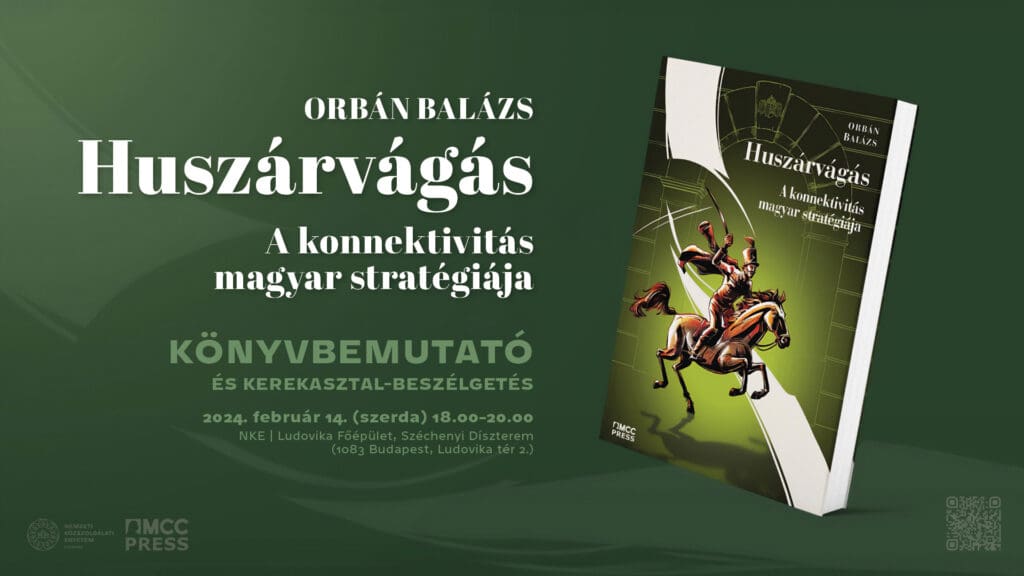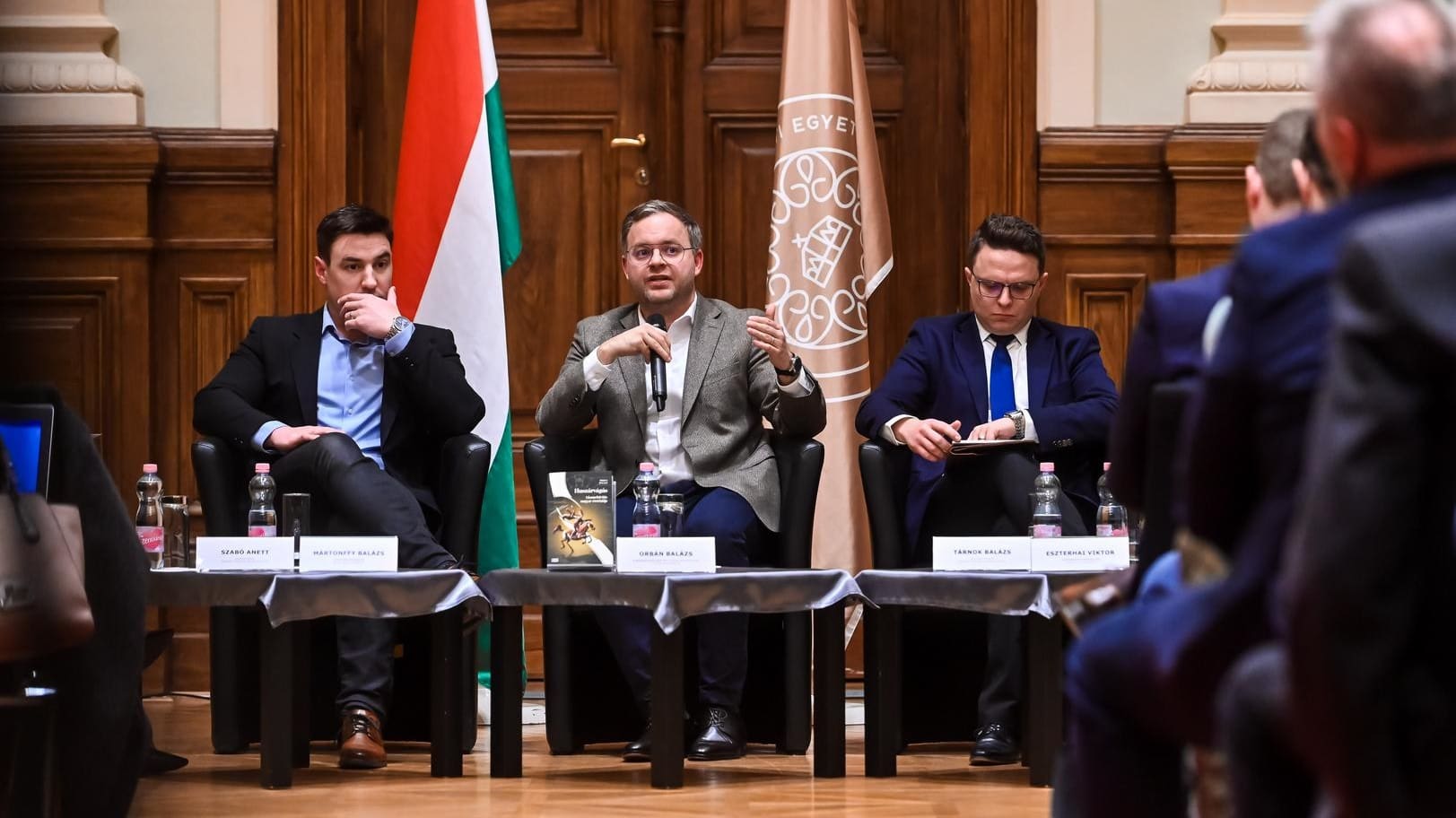Hussar Cut: The Hungarian Strategy for Connectivity, Balázs Orbán’s latest book, has been released in Hungarian and English by MCC Press. The Prime Minister’s political director held a book launch event at the Ludovika University of Public Service on 14 February in Budapest, Hungary, where he gave a short presentation outlining the content of his new book, then participated in a panel discussion.
Mr Orbán started by sharing that he used to work as a teacher’s assistant at the same university that was serving as the venue for his book launch. He then summarized the two major parts of his book: the first being about the changing geopolitical world order, while the second part about Hungary’s place and role in that new order.
As for the former, Orbán talked about the time after the collapse of the Soviet Union, when the United States emerged as the lone superpower, a position—understandably, as the speaker admits—it used to promote agendas favouring its economic and political interests. This period was dubbed by some as ‘the Washington consensus,’ when all the major geopolitical actors believed that the Western economic and political systems would inevitably become the norm across the world. ‘The end of history’ is another term commonly used when discussing this post-Cold War period, as Mr Orbán pointed out: it describes the notion that, with the fall of communism, and due to the interdependence of nations, armed conflicts would become a thing of the past.
However, this view of the geopolitical order of the world has been proven to be wrong in recent years.
In a change of character, the United States is now engaged in the strategy of ‘bloc forming’ again, reminiscent of the Cold War era. The author also talked about the strategy of ‘decoupling,’ which refers to the severing of ties between two economies. ‘De-risking’ is a softer version of that—both terms are quite popular among the Washington leadership these days, in reference to dealing with the Eastern power bloc, most notably China.
As for Hungary’s place in the new world order, the focus of the second part of Balázs Orbán’s book, the author stressed that the country has a very open, connected economy. It is very export-oriented as well, with the combined value of its exported goods reaching as high as 90 per cent of the annual GDP. Given that we are not rich in natural resources, Orbán continued, we also have to heavily rely on imports as well.
Therefore, bloc forming and decoupling are not in the national interest of Hungary.
Mr Orbán reminded all of the great economic improvements Hungary has made since 2010, which it achieved by being a ‘complex, export-oriented, innovative economy,’ as he put it. However, all this could only be achieved by being highly connected to Eastern economies as well, and with the help of a high volume of FDI (foreign direct investment) inflows.
Mr Orbán is under no delusion that the Hungarian government could change the worldview of the greatest superpowers of the West. However, the country does not have to take instructions from them either, and can follow its own strategy of connectivity, cultivating economic ties with countries from the Eastern bloc as well. The speaker also discussed in detail
Hungary’s aspiration of becoming a ‘keystone state’ in the region,
which he defined as states small in landmass and population that can still influence international political systems as leading regional powers.
After his speech, Balázs Orbán participated in a panel discussion, which also featured Director of Research at the John Lukacs Institute Balázs Mártonffy, Head of the Europe Strategy Research Institute Balázs Tárnok, and a research fellow at the John Lukacs Institute, Viktor Eszterhai.

In the discussion, Mr Orbán offered an explanation for the title of his book. A hussar cut is a high-risk, difficult manoeuvre by the cavalry on the battlefield that takes a lot of skill to execute, and it works as a metaphor for the current Hungarian leadership’s decision to break away from the Western superpowers’ mainstream to follow its own strategy of connectivity.
It has its downsides, Orbán admitted, as relations with the current, liberal administration of the US are less than ideal, to say the least. However, on the other side of the coin, the Republican leadership in the US are very aware of what the Hungarian government is doing and some even view it as an example to follow. Mr Orbán told the audience that it has not happened ‘since Kossuth’ that influential American political figures are in fact actively following Hungarian domestic politics.
Mr Orbán also stressed that Hungary’s pursuit of maintaining Eastern economic ties does not mean that it is looking to break away from the Western geopolitical bloc. As he explained, being an EU and NATO member greatly benefits Hungary. For example, this July, Hungary will take the rotating presidency of the EU Council, which provides great opportunities for the country and its conservative leadership.
Related articles:








